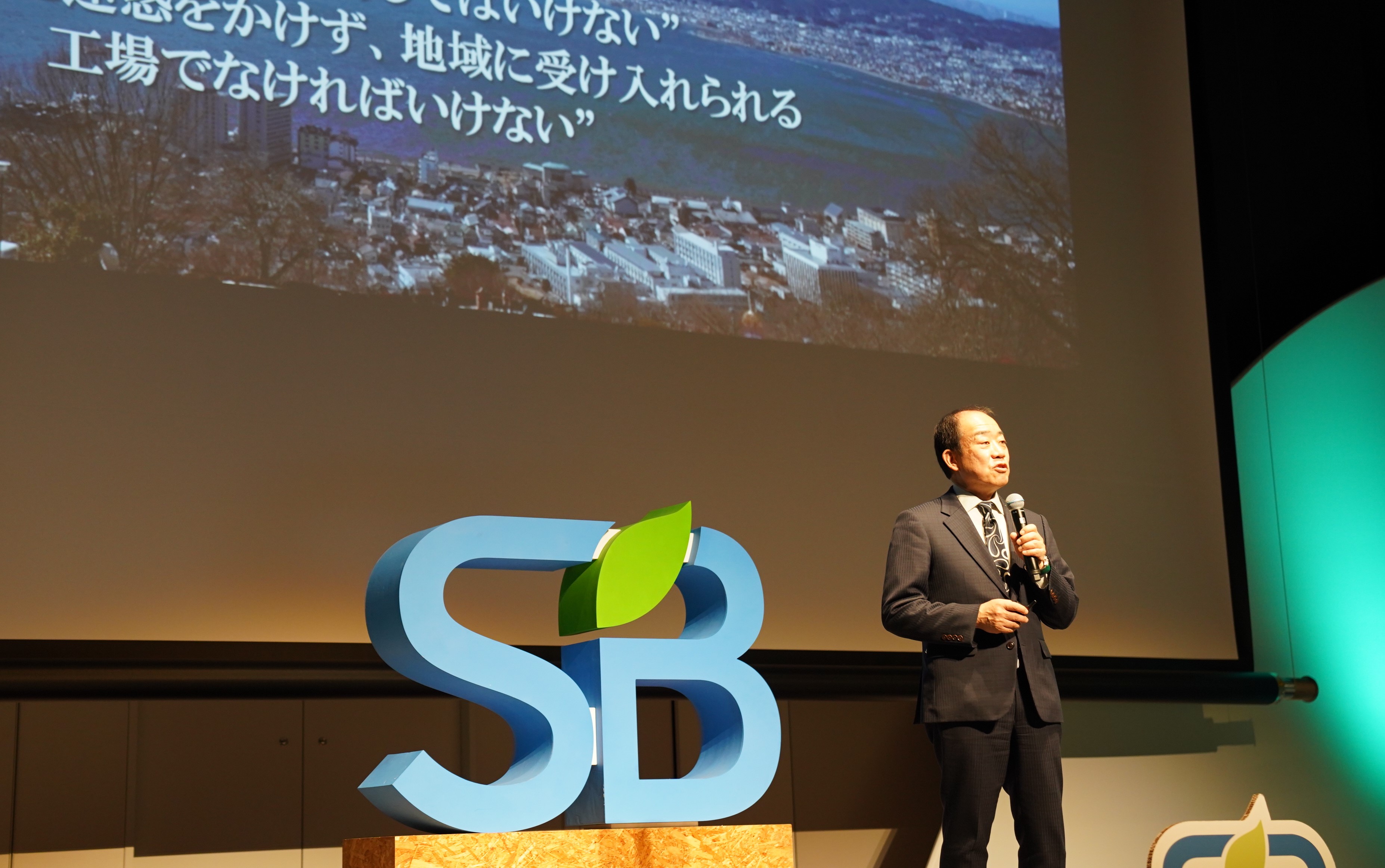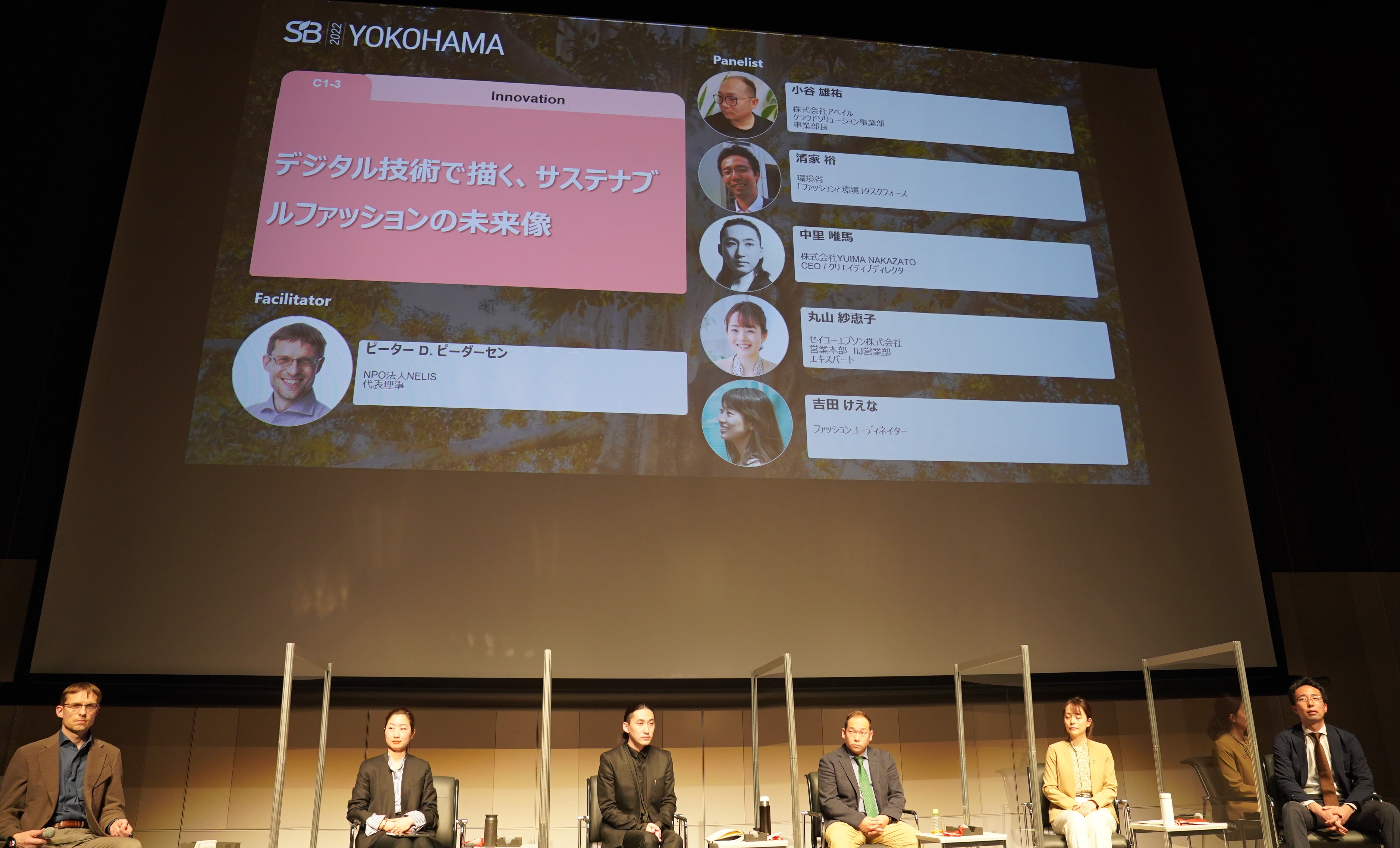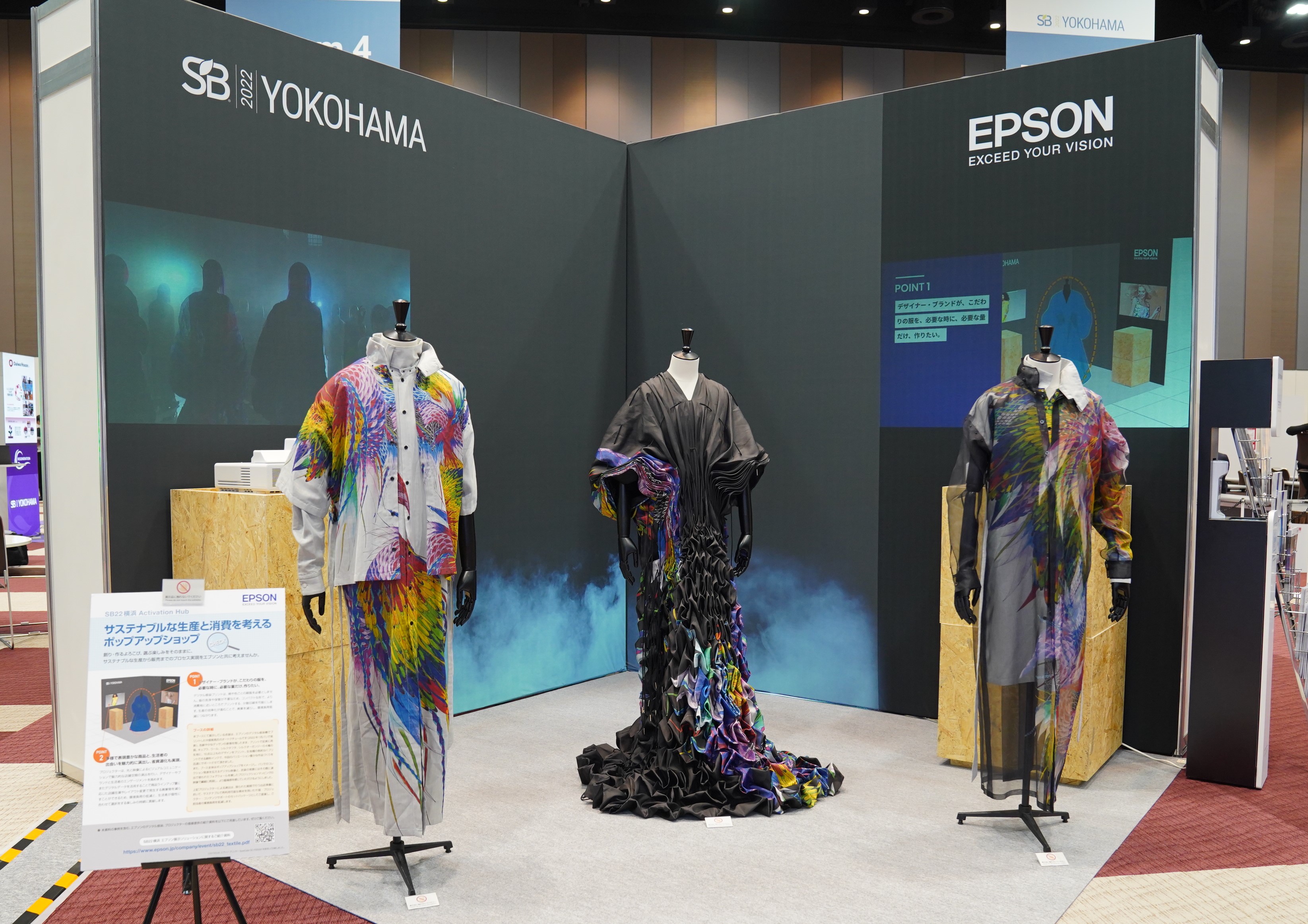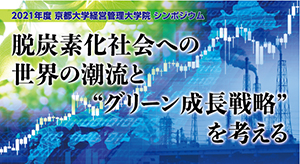Sustainability Communications
- Event Sponsorship and Exhibition
- Participation in a Kyoto University Graduate School of Management Symposium
Epson provides information to its stakeholders about its sustainability activities. But Epson also listens to stakeholders' views and suggestions to help formulate strategies and actions. Epson thus uses various means to maintain two-way communication with stakeholders as a way to improve the quality of its sustainability activities.
Event Sponsorship and Exhibition
Co-Sponsor and Exhibitor at the 2022 Sustainable Brands International Forum in Yokohama1
Epson co-sponsored and exhibited at the 2022 Sustainable Brands International Conference in Yokohama held on February 24 and 25. This was the fourth consecutive year that Epson has served as a co-sponsor.
The theme of SB2022 was "ReGENERATION," which aligns with Epson's goal of achieving sustainability in a circular economy. Epson showcased the social value that it can provide as a company and emphasized the need for co-creation to drive innovation.
In a plenary speech, Seiko Epson President and Representative Director Yasunori Ogawa explained Epson's ideas and initiatives for attaining the aspirational goal of achieving sustainability and enriching communities. He touched particularly on Epson's digital technology for the textile market, which was exhibited in an area called the Activation Hub. He also described Epson's value proposition for resolving societal issues, stressed the need for collaboration with other companies, and called for broader co-creation.
In a breakout session, there was a panel discussion on the future of sustainable fashion as envisioned with digital technology. Hiroshi Seike, subleader of the Ministry of the Environment's Fashion and the Environment Task Force, was invited to represent the point of view of people building fashion-related ecosystems. The rest of the panel was filled out by fashion designer Yuima Nakazato, Yusuke Kotani of production system provider Avail, fashion coordinator Keena Yoshida, and Seiko Epson's Saeko Maruyama. Peter D. Pedersen was the facilitator. They discussed societal issues facing the fashion and apparel industry, efforts being made by various companies to solve those issues, and future possibilities.
In the Activation Hub, there was an exhibit featuring works by fashion designer Yuima Nakazato. The textiles used in his designs were printed with an Epson digital textile printer, and the exhibition space was designed to resemble a pop-up shop. A projector was used to stage a spatial performance, allowing visitors to experience the value created by digital technology.
1 Sustainable Brands conferences are among the world's largest conferences on the subject of sustainability. Sustainable Brands was launched in 2006 in the United States under the shared recognition that embedding the idea of sustainability in business strategies is essential for enhancing corporate competitiveness and brand value.



Participation in a Kyoto University Graduate School of Management Symposium
In August 2021, the Kyoto University Graduate School of Management hosted an online symposium titled "Global Trends toward a Decarbonized Society and Green Growth Strategies." Approximately 500 people, including members of the public, participated in the symposium, where experts from industry, academia, and government discussed green growth strategies for achieving decarbonization.
Tatsuaki Seki, Seiko Epson director, senior managing executive officer (managing executive officer at the time), who heads up the company's Sustainability Promotion Office, delivered a keynote speech on Epson's initiatives to promote sustainability through decarbonization. The topic of the following panel discussion was "Transforming Japanese society to achieve decarbonization." The panel discussed the sizeable gap between the policies necessary for decarbonization and the level of industrial structure needed. They also talked about what they see as the strengths of Japanese companies in a world moving faster toward decarbonization and digitization, as well as ways to overcome the slow pace with which Japanese companies move. Panel members expressed confidence in Epson and offered thought-provoking ideas that we will use in future sustainability initiatives.

Local Communities
Discussions with Local Citizens
Seiko Epson and Epson Group companies engage members of the communities in which they operate. We are working to build trust with these communities by explaining our business, environmental activities, and risk management system as well as by actively listening to their needs and issues.
Every year, we arrange to meet and talk with local officials, including the mayor of Fujimi, Nagano Prefecture, home to the Suwa Minami Plant and the Fujimi Plant. We provide information about our site wastewater treatment facilities, Epson PaperLab office papermaking systems, and Epson textile printers and textile printing technologies. We also discussed and shared ideas about driving regional and company growth.




